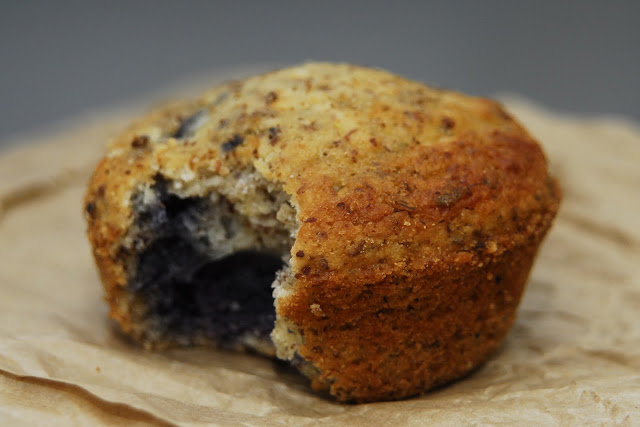 |
| Xylitol is an artificial sweetener which is fine for people to eat - but a threat to the health of pets. |
Dog owners should be aware that the artificial sweetener xylitol is highly toxic and potentially fatal to dogs. Cases of canine xylitol toxicity have occurred when dogs get into sugar-free gum with xylitol in it, but also when dogs eat baked goods containing xylitol.
We treated a young staffy cross who presented almost two days almost two days after consuming muffins baked with xylitol. (They were cooling on the kitchen bench, and the patient couldn't stop at one. She ate at least a dozen - which demonstrates another principle of canine toxicology: if it tastes good and no one is watching, the dose inevitably climbs higher).
What saved this dog was that the owner knew the ingredients of the muffins - having baked them herself, so I had an early suspicion of xylitol toxicity. The dog had eaten a LOT of xylitol (by my calculations, around 10.5g/kg).
She had signs of vomiting, inappetence, lethargy and weakness, followed by jaundice. Not only was she hypoglycaemic, a finding we knew was associated with xylitol toxicity, but she went into acute hepatic failure – something which has only more recently been associated with xylitol toxicity in dogs.
She turned yellow as a banana, developed a coagulopathy (clotting disorder) and we really did not think she would make it. We treated her with IV fluids, glucose (initially), hepatoprotectants (SAMe and Mucomyst), gastroprotectants, antiemetics, antibiotics and vitamin K1 – combined with some late nights, early mornings and crossing our fingers and toes!
She made a complete recovery but it took around 11 days. That allowed plenty of time to read everything there was about xylitol in the literature.
We learned that xylitol, a sweetener which is safe in humans, is incredibly toxic to dogs and can lead to acute hepatic failure. So even dogs which are not hypoglycaemic on presentation may require treatment for hepatotoxicity.
When we contacted the manufacturer she told us of at least one vet who sent two dogs home thinking they would be fine after eating cookies baked with xylitol. Both dogs subsequently died. This particular manufacturer was keen for more veterinarians to be aware of the potential for canine fatalities from this product.
- Dogs with a history of eating 0.15g/kg or more of xylitol should be treated aggressively, and those with a history of eating 0.5g/kg or more may benefit from pre-emptive treatment with hepatoprotectants, particularly N-acetylcysteine (Mucomyst) and SAMe as this may prevent mortality.
For anyone interested in reading more, we wrote up the case in the Australian Veterinary Practitioner. We subsequently learned that the UK's Veterinary Poisons Information Service (VPIS) has campaigned for manufacturers of xylitol to provide visible warnings and information on packaging about the effects of xylitol in dogs and to educate manufacturers about potential risks.
But when I asked if they stocked xylitol, the saleswoman at my local healthfood store told me that xylitol would be great for dogs – because it is great for humans. The disparate effects of xylitol on one species vs another proves again that dogs are not little people.
Reference
Fawcett A, Phillips A and Malik R (2010) Hypoglycaemia and acute hepatic failure associated with accidental xylitol ingestion in a dog. Australian Veterinary Practitioner 40:142
